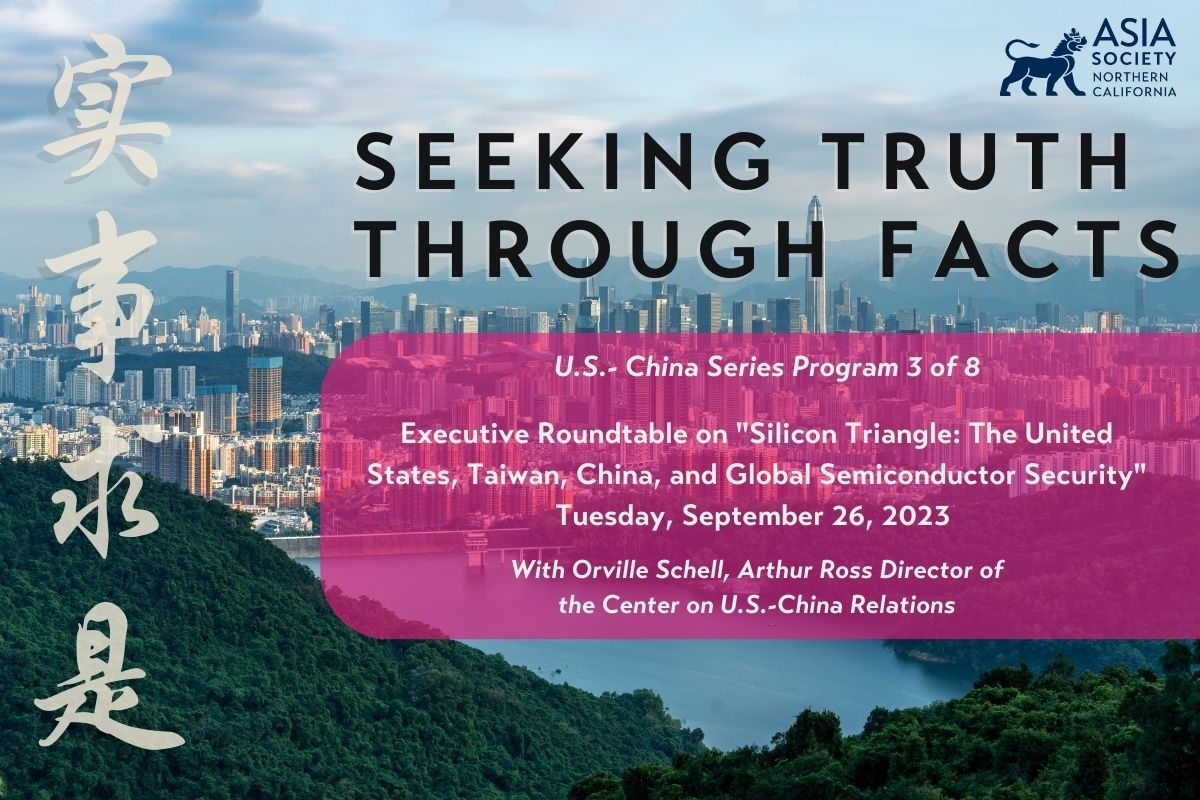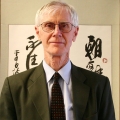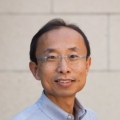Executive Roundtable with Orville Schell on "Silicon Triangle: The United States, Taiwan, China, and Global Semiconductor Security"
VIEW EVENT DETAILS
Join Asia Society Northern California and Orville Schell, Arthur Ross Director of the Center on U.S.-China Relations at Asia Society in New York, to unpack findings from a groundbreaking report on semiconductor security and U.S., Taiwan, and China relations. This report, jointly published by the Hoover Institution and the Asia Society Center on U.S.-China Relations, addresses the vulnerability of semiconductor supply chains, offers suggestions on how to maintain technological competitiveness in the U.S. and stability in Taiwan, and critical insights into the 'triangle' of interdependence between these three economies. This conversation will be moderated by H.-S. Philip Wong, the Willard R. and Inez Kerr Bell Professor in the School of Engineering at Stanford University and former Vice President of Corporate Research at TSMC, the largest semiconductor foundry in the world. Join our private, off-the-record Executive Roundtable on Tuesday, September 26 to engage with Schell and Wong in conversation about trends and future steps in technological geopolitics.
This program is a part of our Seeking Truth Through Facts U.S.-China Program Series, which focuses on new strategic frameworks for the bilateral relationship, plurilateral relationships, rebalancing trade, national security, technology, and climate change; as well as the global impact of the political and economic landscape.
This Executive Roundtable Program is for Innovator, Groundbreaker, Advisory Council, and Board Members and will be held on Tuesday, September 26 from 2:30 p.m. - 4:30 p.m. Pacific in Silicon Valley.
This event is private and off-the-record. Registration and confirmation are required at least 24 hours before the event. Space is limited. Light refreshments will be served.
AGENDA
Date: Tuesday, September 26, 2023 from 2:30 - 4:30 p.m. Pacific
Innovator, Groundbreaker, Advisory Council, and Board Member Event.
- 2:30 p.m. Event Registration and Networking
- 3:00 p.m. Event and Q&A Discussion, light refreshments will be served
- 4:15 p.m. Networking
- 4:30 p.m. Event Concludes
Location: Venue address will be sent to confirmed attendees following registration
SPEAKER

Orville Schell is the Arthur Ross Director of the Center on U.S.-China Relations at Asia Society in New York. He is a former professor and Dean at the University of California, Berkeley’s Graduate School of Journalism. Schell was born in New York City, graduated Magna Cum Laude from Harvard University in Far Eastern History, was an exchange student at National Taiwan University in the 1960s, and earned a Ph.D. (Abd) at University of California, Berkeley in Chinese History. He worked for the Ford Foundation in Indonesia, covered the war in Indochina as a journalist, and has traveled widely in China since the mid-70s.
Schell is the author of fifteen books, ten of them about China, and a contributor to numerous edited volumes. His most recent books are: Wealth and Power, China’s long March to the 21st Century; Virtual Tibet; The China Reader: The Reform Years; and Mandate of Heaven: The Legacy of Tiananmen Square and the Next Generation of China’s Leaders. He has written widely for many magazine and newspapers, including The Atlantic Monthly, The New Yorker, Time, The New Republic, Harpers, The Nation, The New York Review of Books, Wired, Foreign Affairs, the China Quarterly, and the New York Times, the Washington Post and the Los Angeles Times.
He is a Fellow at the Weatherhead East Asian Institute at Columbia University, a Senior Fellow at the Annenberg School of Communications at USC and a member of the Council on Foreign Relations. Schell is also the recipient of many prizes and fellowships, including a Guggenheim Fellowship, the Overseas Press Club Award, and the Harvard-Stanford Shorenstein Prize in Asian Journalism.

H.-S. Philip Wong is the Willard R. and Inez Kerr Bell Professor in the School of Engineering at Stanford University. He joined Stanford University as Professor of Electrical Engineering in 2004. From 1988 to 2004, he was with the IBM T.J. Watson Research Center. From 2018 to 2020, he was on leave from Stanford and was the Vice President of Corporate Research at TSMC, the largest semiconductor foundry in the world, and since 2020 remains the Chief Scientist of TSMC in a consulting, advisory role.
He is a Fellow of the IEEE and received the IEEE Electron Devices Society J.J. Ebers Award, the society’s highest honor to recognize outstanding technical contributions to the field of electron devices that have made a lasting impact, as well as the IEEE Andrew S. Grove Award, the IEEE Technical Field Award to honor individuals for outstanding contributions to solid-state devices and technology.
He is the founding Faculty Co-Director of the Stanford SystemX Alliance – an industrial affiliate program focused on building systems, the faculty director of the Stanford Non-Volatile Memory Technology Research Initiative (NMTRI), and the faculty director of the Stanford Nanofabrication Facility – a shared facility for device fabrication on the Stanford campus that serves academic, industrial, and governmental researchers across the U.S. and around the globe, sponsored in part by the National Science Foundation.
Event Details
Silicon Valley
